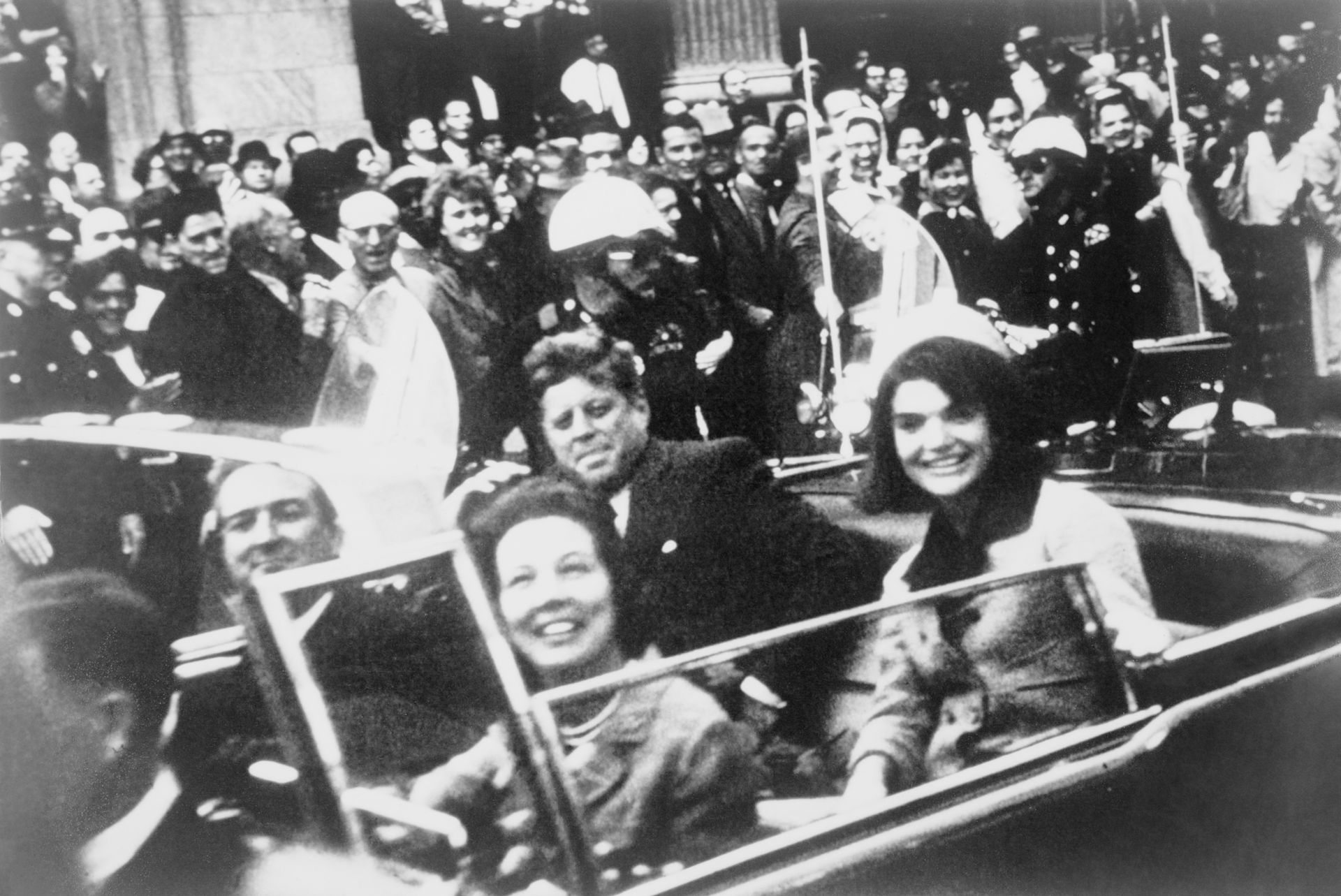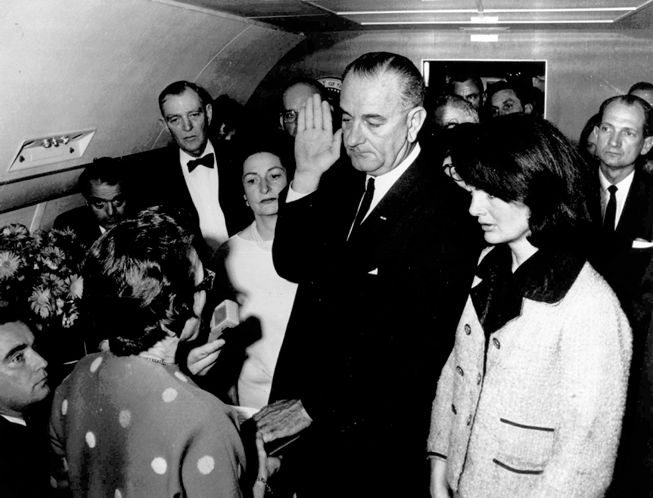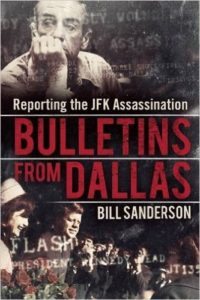 “Please listen.”
“Please listen.”
A highly distinguished journalist, Oglethorpe alumnus Merriman Smith ’36, ’64H delivered that timeless piece of advice to the Oglethorpe graduating class of 1964 — just months after his swiftly dispatched report heard around the world:
“The world into which this group of graduates moves today is complicated—and as I said at the start—messy. A number of voices—in fact, millions of hitherto unheard voices—want to be heard. I conclude with one bit of profundity: Please listen.” – Merriman Smith at Oglethorpe’s 1964 commencement
DALLAS. NOV. 22 (UPI) — THREE SHOTS WERE FIRED AT PRESIDENT KENNEDY’S MOTORCADE IN DOWNTOWN DALLAS.
The White House Correspondent and United Press International (UPI) journalist was the first to break the news that fateful day in 1963, only four minutes after President Kennedy was shot. Although Smith did not see the bullets’ ultimate destination, he observed the chaos of the moment—the sound of gunshots, the crowd in a panic, the motorcade racing away—and quickly drew his conclusion.
Smith sprang to action, beating the other reporters to the wire with the shocking news. He then rushed to the hospital to find the president in his motorcade, his bleeding head resting on the First Lady’s lap, dead. Again, Smith speedily dictated the latest tragic news, only 11 minutes after the assassination.
But, Smith wasn’t done making history that day. Smith was later the only wire reporter on the scene to witness and cover President Johnson’s oath of office on Air Force One.

Lyndon Johnson is sworn in as President of the United States on Air Force One following the assassination of President Kennedy. Merriman Smith ’36 was the only wire reporter to witness the historic moment.
For his coverage of JFK’s assassination, Smith took the stage in 1964 to receive The Pulitzer Prize for National Reporting.
In the years following, the journalist and Oglethorpe alumnus continued to be recognized for his excellence in reporting and was famous for his role in reporting the assassination, appearing regularly on “Merv Griffin” and “The Tonight Show”.
According to Pennsylvania’s The Reading Eagle, “he was the master of a very special skill—the ability to rush away from a news conference or meeting with only his notes and a document or two and dictate a clear, accurate story to the nearest UPI bureau with scarcely a pause,”
“The day Kennedy was killed required perception, accuracy, speed and judgment that Smith displayed while relishing the fire of competition.” – Former UPI journalist Patrick J. Sloyan, 1997
Smith’s competitive edge and rapier wit fueled his drive to consistently reach the telephone first in the age of wire reporting. His “special skill” defined his impressive performance at UPI for 30 years, earning him various accolades and garnering respect among news reporters and even presidents. Author of the UPI column “Backstairs at the White House,” Smith established a strong report with the six Commanders in Chief who served during his time as White House correspondent, from FDR to Nixon.
In 1968, President Lyndon Johnson awarded the Presidential Medal of Freedom to Merriman Smith. President Richard Nixon called him “one of the greatest reporters of our time” and when Smith died in 1970, Nixon held a moment of silence in his honor. To this day, the White House Correspondents’ Association annually recognizes the reporter’s legacy by presenting the Merriman Smith Award.
 Smith’s story lives on in other ways. Bulletins from Dallas: Reporting the JFK Assassination is a recently released book by Bill Sanderson about the iconic journalist. Oglethorpe library and communications staff provided archival information to assist in the author’s research. The book coincides with the Pulitzer Prize’s Centennial Celebration of the Pulitzer Prize, commemorated throughout 2016. As part of the celebration, Sanderson penned an article about Smith for the Pulitzer Prize website.
Smith’s story lives on in other ways. Bulletins from Dallas: Reporting the JFK Assassination is a recently released book by Bill Sanderson about the iconic journalist. Oglethorpe library and communications staff provided archival information to assist in the author’s research. The book coincides with the Pulitzer Prize’s Centennial Celebration of the Pulitzer Prize, commemorated throughout 2016. As part of the celebration, Sanderson penned an article about Smith for the Pulitzer Prize website.
Indeed, as Sanderson shared, “they believe his story stands out among Pulitzer winners.”
Read Merriman Smith’s riveting account of November 22, 1963, in his own words.
Contributor: Renee Vary
